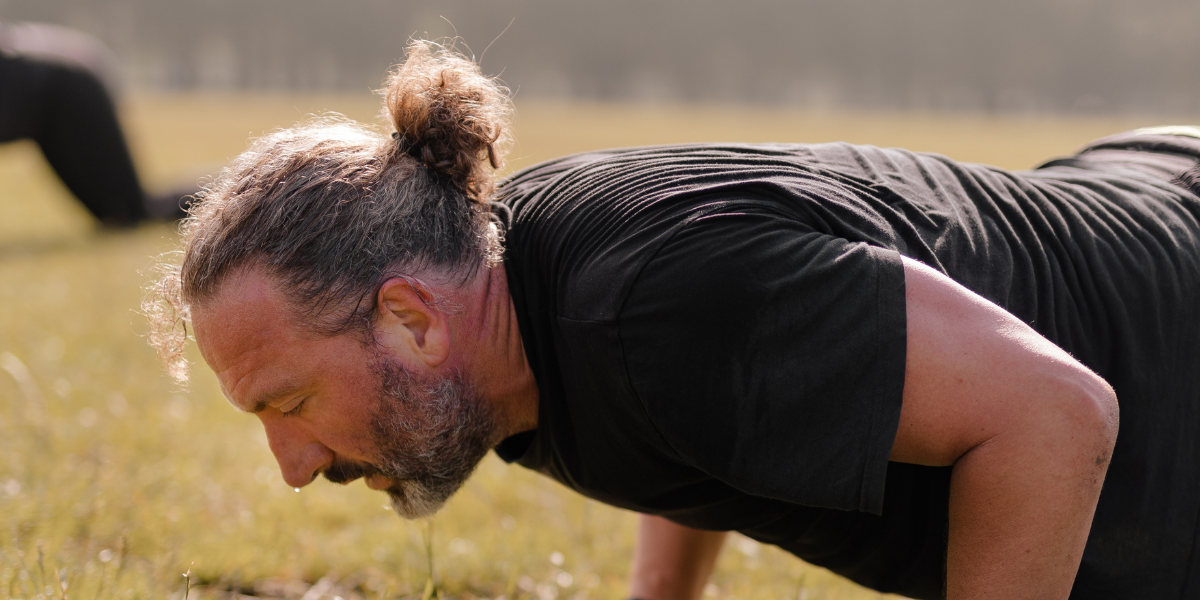
Train Like an Olympian
February 7, 2014
Topics:
From the first Games in Chamonix, France in 1924, the story of the Winter Olympics is one of extraordinary courage, athleticism andsuccess. We now look forward to 17 days of non-stop winter sports action.
Amy Williams, Britain’s first individual Winter Olympic Gold Medalist for 30 years, retired from the Skeleton in 2012, and now relies on BMF to keep herself in shape. She was recently overhead saying “BMF is a great workout that can help to prepare me for big fitness events. I know the gym can put a lot of people off exercising, but with BMF sessions being outdoors, and ex-military instructors pushing you on, it is really motivating.” So, as the New Year is well under way, and your resolutions might be a distant memory, here are some top tips about how to train like an Olympian...
Set a Goal and Make a Plan
Nearly all Olympic athletes design their workout plan using S.M.A.R.T. goals, do you? To break that down for you it stands for: Specific, Measurable, Attainable, Relevant, and Timely. It’s a simple technique that provides structure for short and long term training goals.
For example: I want to attend one class a week for the rest of the year or complete my first half marathon. Simple, but effective.
The essential part of this goal-setting approach is to establish a realistic and measurable goal, design a workout schedule that will meet that goal and stick with that schedule. All the while you will track your progress in a diary and modify your plan as needed. Tip: put sessions into your calendar and treat those like an appointment; if you do you’re more likely to attend.
Build a Foundation of Fitness
Depending upon what your current fitness level is, research shows it can take as long as six weeks to build a solid fitness base. This period involves slowly building endurance, strength, flexibility and cardiovascular conditioning. We always recommend to start your training program slowly, this is where the BMF bib system comes to the fore, enabling you to train at the correct level of fitness and then set targets to reach the next level.
Eat Right
Olympic athletes know how to eat and drink for sports performance and recovery. Remember food is 90% of the health and fitness battle. You can make great changes just through making small adjustments to your eating habits alone. It can be a complicated process and many athletes work with nutritionists and coaches to find the perfect balance of calories and nutrients that work best for them. If you need any help and guidance check out this 21-day kick start plan from the Food Doctor. Also feel free to talk to your instructors; they are a wealth of knowledge.
Build Strength
Building strength and power can provide the extra boost you need to set a new personal best. A well-planned routine of as little as five strength exercises can be all you need. BMF focuses on the larger muscle groups such as chest, back, legs and glutes which helps stimulate muscle fibres for growth and strength and therefore burn more calories and raise your metabolism. The more you train the more you gain.
Rest and Recover the Right Way
Olympic athletes never underestimate the value of rest and recovery in order to achieve peak performance. Stretching, massage, sleep and general downtime are key elements to recover from demanding workouts. BMFers don’t forget this! If the best athletes do it, maybe you should too.
Overtraining can easily occur if you train frequently and at high intensity. It's important to watch for the signs of overtraining and listen to your body when it is calling for rest.
Peak for Big Events
Olympic athletes time their training and rest to coincide with the Olympic Games. They use the term peaking to describe being in the absolute best condition (physical, emotional and mental) at a specific time for an event or race. You can use that same principle to get ready for your major event or competition as well, whether that be The Major Series, a marathon or even BMF testing.
Get a Coach or Trainer
Nearly all Olympic athletes work with a coach or trainer. It's a partnership that allows the athlete to focus on training and competition while the coach handles the workout details, schedules and motivates you. This is exactly what our industry leading BMF instructors are trying to do for you. The benefits of hiring an expert to help you reach your goals are immeasurable. Remember you don't need to be an Olympian to reap the rewards of this relationship.
Mix It Up in the Off Season
You may not realise that Olympic athletes change their program during the off-season to rest more, train less and participate in sports other than the one in which they compete. Why?
When you do the same thing day after day you get very good at it. You may also become physically and mentally stale, bored and prone to injury or burnout. As you know BMF instructors pride themselves of never doing the same session twice, and no instructor is the same either!
Develop Your Mental Game
More and more Olympic athletes are turning to the power of the mind to give them a competitive edge. Research continues to support the idea that it may be possible to improve sports performance and even speed up healing by using specific mental skills and techniques, including imagery and self-hypnosis. Give it a go, it may feel silly at first but like anything practise makes permanent.
